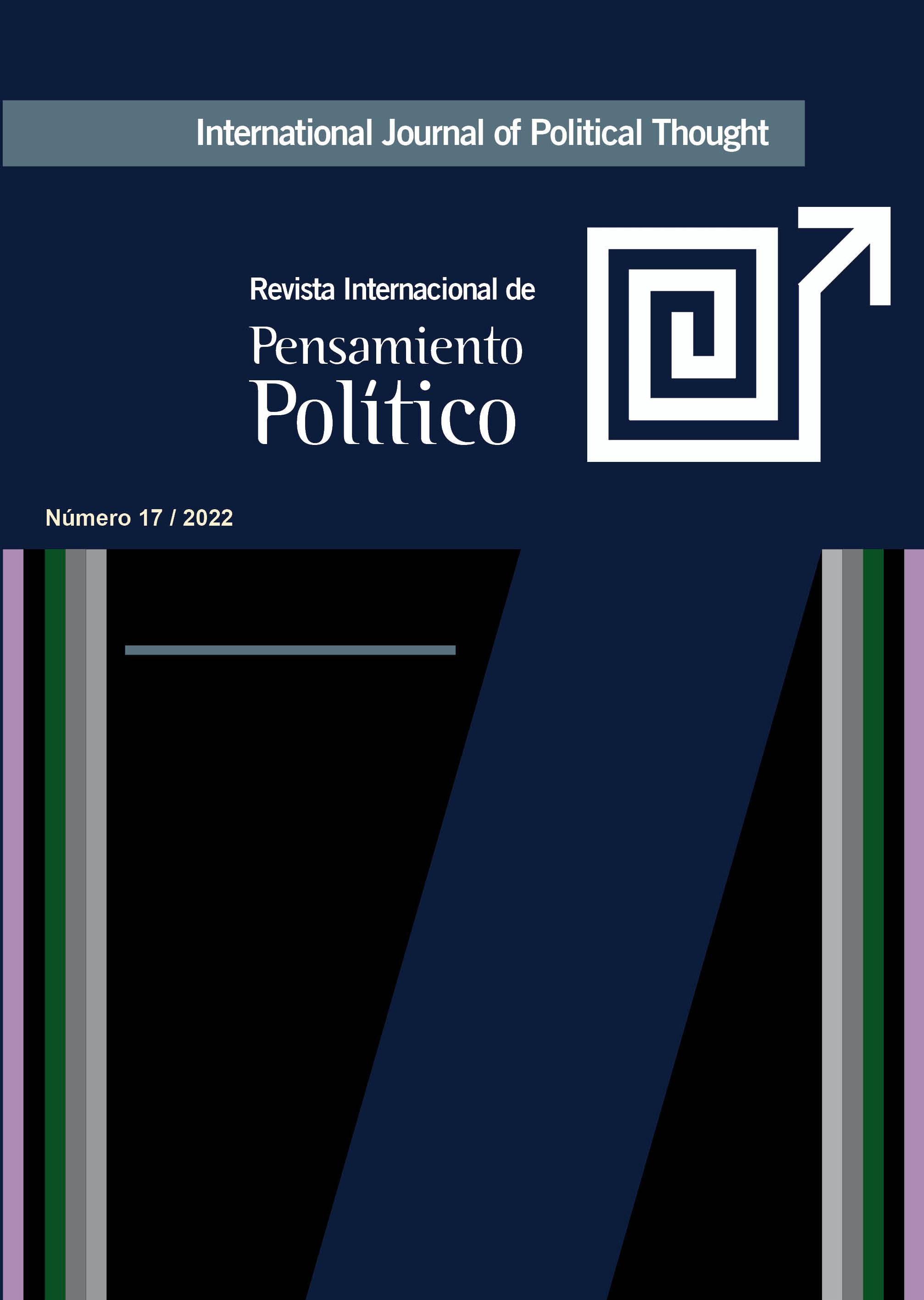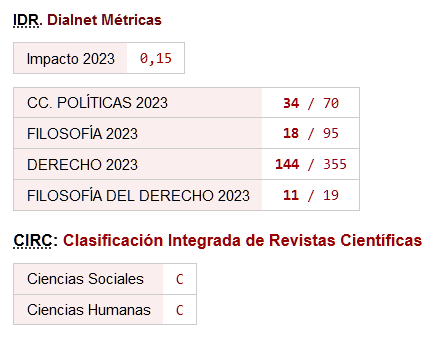Turning Right-Wing? The Ideology of Young Spanish People from Democratic Consolidation Until Now
DOI:
https://doi.org/10.46661/revintpensampolit.7501Keywords:
young people, generations, cohorts, ideology, left-right divideAbstract
Do young people place themselves on right-wing positions to a larger extent? There is a common wisdom about the natural left-wing ideology of youth, compared to adult individuals who would prefer more right lean positions. However, evidence about how age works to explain ideological preferences is scarce. In this article, we analyse how age affects citizens’ ideology paying attention to the life cycle effect, but also the cohort or generational effects, derived from the context when individuals were socialised. Empirical evidence from this article suggests that current youth, even if they keep on placing themselves on left-wing positions to a larger extent than adults, has moved to right-wing ideological positions compared to who were young and socialised during the sixties and seventies.
Downloads
References
Campbell, A. et al. (1960) The American Voter. Chicago: University of Chigago Press.
Corbetta, P., Cavazza, N. y Roccato, M. (2009) «Between ideology and social representations: Four theses plus (a new) one on the relevance and the meaning of the political left and right», European Journal of Political Research, 48(5), pp. 622-641. https://doi.org/10.1111/j.1475-6765.2009.00845.x
Corbetta, P., Tuorto, D. y Cavazza, N. (2013) «Parents and children in the political socialization process: changes in Italy over thirty-five years», en Abendschön, S. (ed.) Growing into politics. Colchester: ECPR Press.
Cordero, G. y Martín, I. (2011) ¿Quiénes son y cómo votan los españoles de izquerdas? Madrid: La Catarata.
Cornelis, I. et al. (2009) «Age differences in conservatism: Evidence on the mediating effects of personality and cognitive style», Journal of Personality, 77(1), pp. 51-88. https://doi.org/10.1111/j.1467-6494.2008.00538.x
Dalton, R. J. (2000) «The decline of party identifications», en Dalton, R. J. y Wattenberg, M. P. (eds.) Parties without Partisans. Political Change in Advanced Industrial Democracies. Oxford: Oxford University Press, pp. 19-36. https://doi.org/10.1093/0199253099.003.0002
van Deth, J. W. y Elff, M. (2004) «Politicisation, economic development and political interest in Europe», European Journal of Political Research, 43(3), pp. 477-508. https://doi.org/10.1111/j.1475-6765.2004.00162.x
Dinas, E. y Stoker, L. (2014) «Age-Period-Cohort analysis: A design-based approach», Electoral Studies, 33, pp. 28-40. https://doi.org/10.1016/j.electstud.2013.06.006
Eijk, C. van der, Schmitt, H. y Binder, T. (2005) «Left - Right Orientations and Party Choice», en Thomassen, J. (ed.) The European Voter. Oxford: Oxford University Press, pp. 166-190.
Emmenegger, P., Marx, P. y Schraff, D. (2016) «Off to a Bad Start: Unemployment and Political Interest during Early Adulthood», The Journal of Politics, 79(1), pp. 315-328. https://doi.org/10.1086/688226
Feather, N. T. (1977) «Value importance, conservatism, and age», European Journal of Social Psychology, 7(2), pp. 241-245. https://doi.org/10.1002/ejsp.2420070209
Fishman, R. M. y Lizardo, O. (2013) «How Macro-Historical Change Shapes Cultural Taste: Legacies of Democratization in Spain and Portugal», American Sociological Review, 78(2), pp. 213-239. https://doi.org/10.1177/0003122413478816
Flacks, R. (1967) «The Liberated Generation: An Exploration of the Roots of Student Protest», Journal of Social Issues, XXIII(3), pp. 52-75. https://doi.org/10.1111/j.1540-4560.1967.tb00586.x
Galais, C. (2012) «Edad, cohortes o periodo. Desenredando las causas del desinterés político en España», Revista Española de Investigaciones Sociológicas, 139, pp. 85-109. https://doi.org/10.5477/cis/reis.139.85
García-Albacete, G. (2014) Young people's political participation in Western Europe: Continuity or Generational Change? Basingstoke: Palgrave Macmillan. https://doi.org/10.1057/9781137341310
García-Albacete, G. y Lorente, J. (2021) «Has the Great Recession Shaped a Crisis Generation of Critical Citizens? Evidence from Southern Europe», South European Society and Politics, pp. 1-27. https://doi.org/10.1080/13608746.2021.1949672
Gerring, J. (1997) «Ideology: A Definitional Analysis», Political Research Quarterly, 50(4), pp. 957-994. https://doi.org/10.1177/106591299705000412
Glenn, N. D. (1974) «Aging and Conservatism», Annals of the American Academy of Political and Social Science, 415, pp. 176-186. https://doi.org/10.1177/000271627441500113
Grasso, M. T. et al. (2019) «Thatcher's Children, Blair's Babies, Political Socialization and Trickle-down Value Change: An Age, Period and Cohort Analysis», British Journal of Political Science. 2017/01/26, 49(1), pp. 17-36. https://doi.org/10.1017/S0007123416000375
Hay, C. (2007) Why we hate politics. Cambridge: Polity Press.
Henn, M., Weinstein, M. y Forrest, S. (2005) «Uninterested Youth? Young People's Attitudes towards Party Politics in Britain», Political Studies, 53(3), pp. 556-578. https://doi.org/10.1111/j.1467-9248.2005.00544.x
Hyman, H. H. (1959) Political Socialization: a study of psychology of political behavior. Glencoe: Free Press.
Ignazi, P. (2005) «Meanings and Varieties of the Right», en Extreme Right Parties in Western Europe. Oxford: Oxford University Press, pp. 4-19. https://doi.org/10.1093/0198293259.001.0001
Jennings, M. K. (1979) «Another Look at the Life Cycle and Political Participation», American Journal of Political Science, 23(4), pp. 755-771. https://doi.org/10.2307/2110805
Jennings, M. K. (1987) «Residues of a Movement: The Aging of the American Protest Generation», The American Political Science Review, 81(2), pp. 367-382. https://doi.org/10.2307/1961957
Jennings, M. K. (1989) «The Crystallization of Political Orientations», en Jennings, M. K. y van Deth, J. W. (eds.) Continuities in Political Action. A Longitudinal Study of Political Orientations in Three Western Democracies. New York: Walter de Gruyter, pp. 313-348. https://doi.org/10.1515/9783110882193.313
Jennings, M. K. (1990) «The crystalization of political orientations», en Continuities in Political Action. Berlin: De Gruyter. https://doi.org/10.1515/9783110882193
Jennings, M. K. (2002) «Generation Units and the Student Protest Movement in the United States: An Intra- and Intergenerational Analysis», Political Psychology, 23(2), pp. 303-324. https://doi.org/10.1111/0162-895X.00283
Jennings, M. K. (2007a) «Political Socialization», en Klingemann, D. R. H. D. (ed.) The Oxford Handbook of Political Behaviour. Oxford: Oxford University Press.
Jennings, M. K. (2007b) «Political Socialization», en Dalton, R. J. y Klingemann, H.-D. (eds.) The Oxford Handbook of Political Behavior. Oxford: Oxford University Press, pp. 29-44. https://doi.org/10.1093/oxfordhb/9780199270125.003.0002
Jennings, M. K. y Niemi, R. G. (1968) «The transmission of Political Values between Parent and Children», American Political Science Review, 62(1), pp. 169-184. https://doi.org/10.1017/S0003055400115709
Jennings, M. K. y Niemi, R. G. (1975) «Continuity and Change in Political Orientations: A Longitudinal Study of Two Generations», American Political Science Review, 69(4), pp. 1316-1335. https://doi.org/10.2307/1955291
Jennings, M. K. y Niemi, R. G. (1981) Generations and Politics. A Panel Study of Young Adults and their Parents. Princeton: Princeton University Press. https://doi.org/10.1515/9781400854264
Lipset, S. M. et al. (1954) «The Psychology of Voting: an Analysis of Political Behavior», en Linzey, G. (ed.) Handbook of Social Psychology. Vol 2. MA: Adison-Wesley.
Lorente, J. (2019) Los jóvenes y la división izquierda-derecha en Europa en los últimos treinta años: generaciones y voto. Madrid: Centro de Investigaciones Sociológicas.
Mannheim, K. (1952) «The Problem of Generations», Essays on the Sociology of Knowledge, 24(19), pp. 276-322; 22-24.
Martín, I. (2004a) Significados y orígenes del interés por la política en dos nuevas democracias: España y Grecia. Universidad Autónoma de Madrid - Centro de Estudios Avanzados en Ciencias Sociales.
Miller, W. L. y Niemi, R. G. (2002) «Voting: Choice, Conditioning, and Constraint», en LeDuc, L., Niemi, R. G., y Norris, P. (eds.) Comparing Democracies 2: New Challenges in the Study of Elections and Voting. London: Sage, pp. 169-188.
Montero, J. R., Gunther, R. y Torcal, M. (1998) «Actitudes hacia la democracia en España: legitimidad, descontento y desafección», Revista Española de Investigaciones Sociológicas, (83), pp. 9-49. https://doi.org/10.2307/40184120
Neundorf, A. y Niemi, R. G. (2014) «Special Symposium - Beyond Political Socialization: New Approaches in Age, Period, Cohort Analysis», Electoral Studies, 33, pp. 1-356. https://doi.org/10.1016/j.electstud.2013.06.012
Ray, J. J. (1985) «What old people believe: Age, sex, and conservatism.», Political Psychology, 6(3), pp. 525-528. https://doi.org/10.2307/3791086
Russell, A. T., Johnston, R. J. y Pattie, C. J. (1992) «Thatcher's Children: Exploring the Links between Age and Political Attitudes», Political Studies, 40(4), pp. 742-756. https://doi.org/10.1111/j.1467-9248.1992.tb01796.x
Ryder, N. B. (1965) «The Cohort as a Concept in the Study of Social Change», American Sociological Review, 30(6), pp. 843-861. https://doi.org/10.2307/2090964
Sears, D. O. y Levy, S. (2003) «Childhood and Adult Political Development», en Huddy, L., Sears, D. O., y Levy, J. S. (eds.) Oxford Handbook of Political Psychology. Oxford University Press, pp. 59-95. https://doi.org/10.1093/oxfordhb/9780199760107.013.0003
Sherkat, D. E. y Blocker, T. J. (1993) «Environmental Activism in the Protest Generation. Differentiating 1960s Activists», Youth, 25(1), pp. 140-161. https://doi.org/10.1177/0044118X93025001009
Truett, K. R. (1992) «Age differences in conservatism», Personality and Individual Differences, 14, pp. 405-411. https://doi.org/10.1016/0191-8869(93)90309-Q
Downloads
Published
How to Cite
Issue
Section
License
Copyright (c) 2022 Javier Lorente Fontaneda, Irene Sánchez-Vítores

This work is licensed under a Creative Commons Attribution-NonCommercial-ShareAlike 4.0 International License.
Open access policy
Free and open access is allowed to any interested party to all the contents of the journal issues, free of charge, being able to print and transfer all the articles, with the only condition of specifying the source and authorship.
The journal: a) does not charge authorship costs for the processing of articles or for their submission, b) maintains copyright for authors without restrictions, c) facilitates authors to keep their publication rights without limitations.
The International Journal of Political Thought is an original work of the Laboratory of Political Ideas and Practices of the Pablo de Olavide University. All articles included in the Journal are original work of their respective authors. This Journal is freely offered to the scientific and academic community at no cost and releases the contents according to the license "Attribution-NonCommercial-ShareAlike 4.0 CC BY-NC-SA" of the Creative Commons project available in the following url: https://creativecommons.org/licenses/by-nc-sa/4.0/legalcode
If you wish to translate or compile any of the articles available here, please contact us at contacto












 ISSN: 1885-589X
ISSN: 1885-589X  Universidad Pablo de Olavide
Universidad Pablo de Olavide